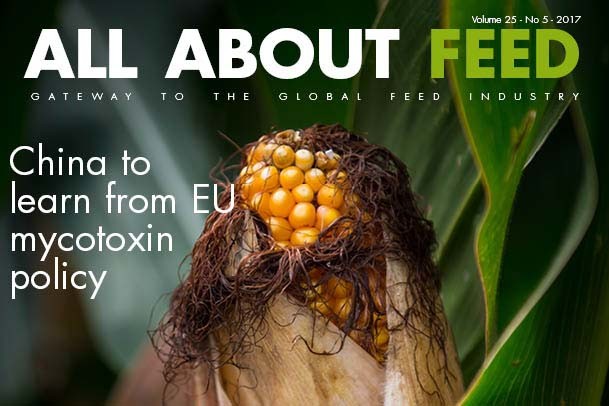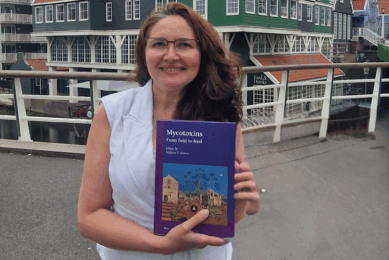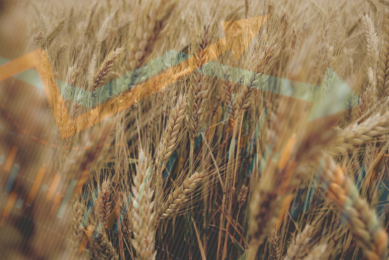All About Feed issue 5 now online

The June edition of All About Feed (issue 5) is now available to read in our digital magazine section. In this issue we talked to John Gilbert from the MyToolBox project, amongst other topics…
The EU has come a long way in producing regulatory guidelines for mycotoxin deactivation products. What can China learn from this? There is currently no authorisation procedure in place in China for detoxification additives. As such, no standard protocol is available to verify the efficacy and safety of mycotoxin binders/ deactivators on the Chinese market. In 2013, the Ministry of Agriculture therefore initiated a 5-year project entitled ‘Mycotoxin detoxifying feed additives standard drafting’.
In this issue of All About Feed we talked to John Gilbert, who is leading the project between the EU and China (as part of the MyToolBox project. “We are planning two animal studies to be conducted in China one on AFB1 in the feed of dairy cattle and another on fumonisins in feed for pigs. Both studies will strictly follow the EFSA protocol and in both studies EU approved detoxifiers will be used alongside additives from China,” explains Gilbert. He hopes that this strategy will be successful in persuading the Chinese of the merits of the EU approach.
Betaine has different applications for different animal species. Not only feed cost savings, but also performance enhancement can be obtained by including betaine in diet formulation used today. Some of the applications are not well-known or widely used. Nevertheless, they show a contribution to increased performance of (high producing) animals with modern genetics exposed to day-to-day challenges such as heat stress, fatty livers and coccidiosis.

In this overview article, Arno van der Aa delves deeper in the benefits of using betaine for different animal species. One of them is coccidiosis. “Coccidiosis in avian species is an enteric disease, and the infection is associated with osmotic and ionic disorders, probably caused by dehydration and diarrhea. Betaine is well-known for its ability to help cells tolerate osmotic stress and allows them to continue regular metabolic activities in conditions that would normally inactivate the cell,” explains Van der Aa. Read the full article on page 9 of this issue.
Also in this issue:
• Natural antioxidants for broilers
• Good quality water for cows
• Prevention of leaky gut syndrome
• Can we measure gut health?
• Future of Russian feed
To read all the articles in this issue, go to the magazine overview page and sign up with your current website login.











